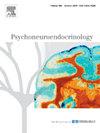精神病学和神经学人群的实验室应激研究:走向共识指南
IF 3.6
2区 医学
Q2 ENDOCRINOLOGY & METABOLISM
引用次数: 0
摘要
涉及急性实验室应激诱导的研究对于理解应激在人类健康和疾病中的作用至关重要。然而,对于涉及精神或神经疾病个体的压力研究,缺乏以参与者为中心的指南。使用德尔菲法,我们建立了在这些人群中采用压力诱导范式研究的最佳实践共识。我们的小组包括多达179名受访者。在最后一轮调查中,173名受访者完成了调查,其中包括22名研究人员、70名压力研究参与者(急性、慢性或日常生活)、115名有实际经验的人、21名医疗保健专业人员和4名伦理学家。在三轮匿名在线调查中,参与者按照李克特5分制对52项陈述的同意程度进行打分。38个陈述(73.1 %)达成共识,定义为≥ 70 %(不)一致。我们的研究结果强调了在临床人群中使用应激诱导范式的研究中,仔细平衡有效应激诱导和可接受强度的重要性。我们为研究过程的所有阶段提供建议,包括方案设计、招募、知情同意程序、压力诱导程序、汇报和后续行动。这些指导方针作为一个实用的框架来支持未来实验室压力研究的设计,目的是支持参与者的福祉和科学有效性和可比性。本文章由计算机程序翻译,如有差异,请以英文原文为准。
Laboratory stress research in psychiatric and neurological populations: toward a consensus guideline
Research involving acute laboratory stress induction is essential to understanding the role of stress in human health and disease. However, participant-centered guidelines for stress research involving individuals with psychiatric or neurological disorders are lacking. Using the Delphi method, we established consensus on best practices for research employing stress induction paradigms in these populations. Our panel included up to 179 respondents. In the final round, 173 respondents completed the survey, comprising 22 researchers, 70 stress study participants (acute, chronic, or daily-life), 115 individuals with lived experience, 21 healthcare professionals, and 4 ethicists. In three anonymous online survey rounds, participants rated their agreement with 52 statements on a 5-point Likert scale. Consensus, defined as ≥ 70 % (dis)agreement, was reached for 38 statements (73.1 %). Our findings highlight the importance of carefully balancing effective stress induction with acceptable intensity in studies using stress induction paradigms in clinical populations. We provide recommendations spanning all phases of the research process, including protocol design, recruitment, informed consent procedures, stress induction procedures, debriefing and follow-up. These guidelines serve as a practical framework to support the design of future laboratory stress studies, with the aim of supporting both participant well-being and scientific validity and comparability.
求助全文
通过发布文献求助,成功后即可免费获取论文全文。
去求助
来源期刊

Psychoneuroendocrinology
医学-精神病学
CiteScore
7.40
自引率
8.10%
发文量
268
审稿时长
66 days
期刊介绍:
Psychoneuroendocrinology publishes papers dealing with the interrelated disciplines of psychology, neurobiology, endocrinology, immunology, neurology, and psychiatry, with an emphasis on multidisciplinary studies aiming at integrating these disciplines in terms of either basic research or clinical implications. One of the main goals is to understand how a variety of psychobiological factors interact in the expression of the stress response as it relates to the development and/or maintenance of neuropsychiatric illnesses.
 求助内容:
求助内容: 应助结果提醒方式:
应助结果提醒方式:


